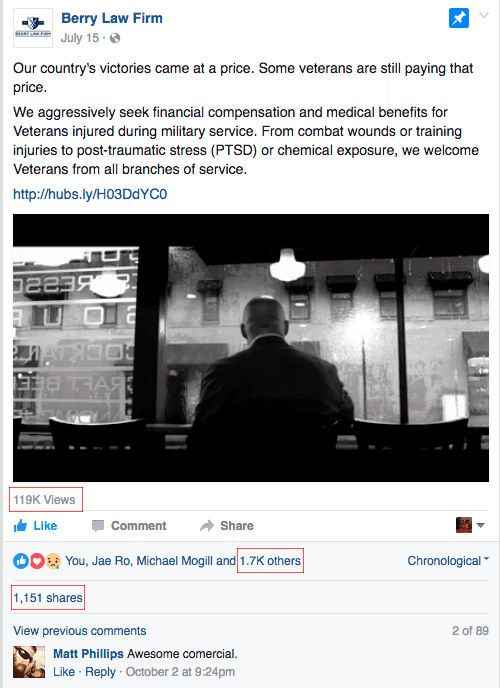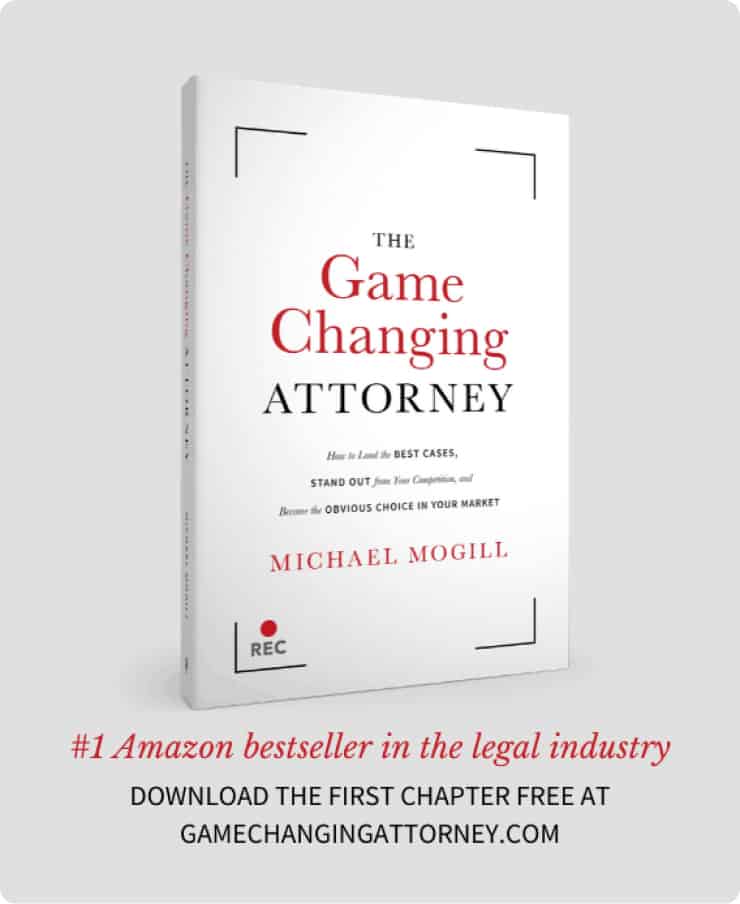In the digital age, finding competitors and comparing other law firms is as easy as Googling “accident lawyer” and clicking the top results.
And competition is no longer restricted to local firms. You also have to compete with national and even international goliaths.
It’s a new landscape out there, and most legal marketing teams are struggling to keep up.
In this article, we cover the challenges of building a winning legal marketing team and how you can beat the odds.
Follow the steps we outline to consistently win clients in 2020 and beyond.
What you’ll get in this guide:
- What makes a winning legal marketing team?
- Three approaches to building a legal marketing team (and what works in 2020)
What makes a winning legal marketing team?
In order to understand why it’s almost impossible to build a winning legal marketing team, we first have to define what a “winning legal marketing team” is.
From mastering digital channels to industry knowledge and wider marketing strategies, the primary challenge is that there’s simply so much to know.
Mastery of digital channels
In 2019, digital marketing spend worldwide surpassed the market share of all traditional media. At 50.1% of total spend, digital marketing has become, both in terms of expenditure and in profit, the most impactful growth channel for businesses of all kinds.
However, this stuff is complicated.
Mastering digital marketing isn’t an easy task. There are at least 8 different disciplines that take years to master:

A quick primer on these core disciplines:
- Conversion Funnels: With a conversion funnel, you can create an optimized path and guide your law firm’s prospective clients through it.
- Content Marketing: Use blog posts, videos, and other online content to provide value and build relationships with your potential clients.
- Paid Marketing: With pay-per-click, social media, and display ads, you can create scalable, laser-targeted campaigns to reach potential clients.
- Email Marketing: This uses your email list to provide valuable information to clients and potential clients.
- Social Media: Facebook, Instagram, and other social platforms have become go-to sources for people to find information. Over one million new users join social media every day, and 54% of them use social to research everything from a new pair of shoes to a divorce lawyer.
- Search Marketing: Search engine optimization (SEO) is essential to get your business to rank higher in Google’s search results.
- Data and Analytics: Who are your visitors, demographically? Where do they come from, and how do they interact with your website? Analytics show you which of your marketing and advertising campaigns are working and how you can drive more online conversions
- Testing and Optimization: Which of your campaigns are driving the most revenue? Can you repeat, or improve upon, the success? Testing, optimizing, and testing again is key to learning the best way to reach your prospective clients.
And while these are the core disciplines, digital marketing doesn’t end here. There are many more channels, and tons of online marketing pitfalls to avoid.
Since the industry is constantly changing, just trying to keep up can be a challenge — remember that MySpace & Yahoo went from industry leaders to also-rans in a few short years.
If you don’t have a marketing team that is experienced with digital channels, you won’t be able to market your law firm in 2020 effectively.
Legal industry knowledge and experience
The team that creates your marketing strategies and advertising materials must have experience in the legal industry. That doesn’t mean they have to be attorneys, but they do have to understand the attorney-client relationship, the sales process, business models, pain points, and common objections.
No matter the industry, effective marketing is only as good as a team’s understanding of who your potential clients are and how you can best address their needs.
And in the legal industry, it’s even more complicated. You’re firm doesn’t sell a “product,” it sells you — your experience, your story, your past successes. Effectively marketing you is a different kettle of fish than marketing a piece of software or a bottle of Coca-Cola.
That’s why it’s so essential that you work with a team or individual with years of experience growing businesses in the legal industry.
Content marketing expertise
Businesses that use content marketing see a 72% increase in leads on average. Content marketing is especially useful in industries (such as legal) that rely on relationship-building or have a longer sales process. The average person engages with 11 pieces of content before making a purchase decision.
In short, it’s no longer enough to have a simple website that states your services. You have to earn your prospective client’s attention and trust.
The modern client likes to do their research before making a decision. They want to know more about your firm, your background, and why they should choose you over the competition.
Your team needs to know how to:
- Craft a relevant content marketing strategy.
- Create a brand voice that your ideal clients will trust.
- Get relevant traffic to your content with social and search marketing.
- Create an optimized marketing funnel that turns visitors into leads and leads into prospects and clients, whether through email or calls.
Content marketing is an area of significant untapped potential for most law firms. And because it requires an investment of time rather than a high budget for ads, many haven’t prioritized it.
Done right, content marketing (such as educational videos, webinars, or a frequently-updated blog) can become the cornerstone of your firm’s lead generation process. Over time, you can get enough leads to keep your intake team busy, without spending thousands on ads every month.
Finally, converting inbound leads from content into paying clients is a smoother process than with other sources. These are people who are warm from their first touch-point with your firm — offering educational content provides value before you even have a conversation about how you can help them with their legal needs.
Mastery of law firm marketing strategies
Your team also needs to have mastered marketing strategies that have proven particularly effective for law firms. You can’t just follow a generic marketing course that focuses on marketing consumer products and expect results.
With content marketing, for instance, some specific tactics and strategies will work for certain kinds of firms. The same is true for social media and paid traffic as well.
But not everything.
Your team must also understand basic strategies for effectively marketing your firm, such as:
- Establishing a brand and developing a Unique Value Proposition (UVP).
- Focusing on one niche to establish a foothold and network.
- Using legal video to build trust and convert more visitors into leads and clients.
For more on these legal marketing strategies (and more than a dozen others), check out our recent article “Marketing Ideas for Law Firms: Use These 20 Ideas to Skyrocket Your Growth.”
Of course, reading a blog post isn’t enough to make you or your team legal marketing experts. Like practicing law, education only goes so far. The only way to truly grow your firm is either through trial and error or working with a team that already has the experience you need.
Access to real data from successful legal marketing campaigns
When it comes to creating a successful marketing campaign in any industry, there is a cheat code:
Real data from previous successful campaigns.
Real-world data is the secret to success that marketing agencies will have over inexperienced in-house teams. Experienced teams will have real data from recent successful campaigns in your same industry. This data can help them guide your law firm’s growth. Data — and experience — informs their decisions and the strategies they use when creating new campaigns for similar clients (like you).
For law firms considering their first large-scale marketing campaign, this can be a significant roadblock.
How can you use data to guide you when planning your first real campaign?
Find someone who has access to useful data that is willing to partner with you.
At Crisp, we have been able to help our clients generate more than $150,000,000 in revenue since our foundation in 2012. We’ve helped launch successful campaigns for law firms in a variety of practice areas. For instance, the social media marketing and advertising campaign we ran for Berry Law Firm drove over a million views and more than 300 leads from Facebook:

Our experts have built a unique legal marketing skillset based on data from real legal marketing campaigns. They know what works and what doesn’t. They have tried and tested all strategies, tactics, channels, and angles.
If you want your legal team to benefit from this experience, you can take advantage of our exclusive Crisp Coach programs. Your team will get direct access to our top marketing experts and learn the ins and outs of legal marketing in the digital age.
Three approaches to building a legal marketing team (and what works in 2020)
There are three approaches to building a marketing team; in-house, agency, and a combination of both. We cover the pros and cons of each method below.
The in-house approach

With an in-house team, you have complete control over your brand and your campaigns. It’s easy to tap into the knowledge of senior partners because everybody works out of the same office.
It’s also easy for your marketing team to coordinate around the overall goals you have for your marketing campaigns.
But unfortunately, that’s where the upsides end.
Hiring team members for your in-house marketing team tends to be a costly and time-consuming process. It can be challenging to find marketers with relevant experience and provide the training they need.
Even with an assembled team, there are downsides. Lack of expertise and resources can lead to slow turnaround and lackluster results.
The agency-only approach

Agencies have technical expertise, access to data from similar campaigns, and better resources for quick turnaround.
Experience, larger teams, a different structure, and their existing network empower agencies to reduce the turnaround on planning and creating new campaigns. They also tend to have experience with strategy.
But agencies also have their downsides.
A large agency may see you as just another client. They may fail to understand your brand or your clients. They tend to focus on short-term objectives, rather than sustainable, long-term goals.
Communication can be a challenge, and projects and campaigns can get bogged down in development and a constant back-and-forth.
The hybrid solution

With a hybrid solution — experienced in-house marketers collaborating directly with an external team — you get the best of both worlds.
You can stick to clear brand guidelines while tapping into the technical expertise of experienced digital marketers.
Your in-house marketers can work directly with senior attorneys and use their experience to craft messages that speak directly to potential prospects. Then the agency can help with everything from education of your team to campaign execution.
Master legal marketing in 2020 and beyond with Crisp Academy

We’ve tapped our extensive experience creating and managing successful legal growth campaigns and — in partnership with DigitalMarketer (the leading resource for marketing training & development) — created a one-of-a-kind training platform for your law firm.
Help your team bridge the gap with courses in all essential digital marketing disciplines. With Crisp Academy, they’ll master everything from content marketing, video, and analytics to conversion funnels and digital advertising.
Crisp Academy is only available through our exclusive Crisp Coach coaching programs.







